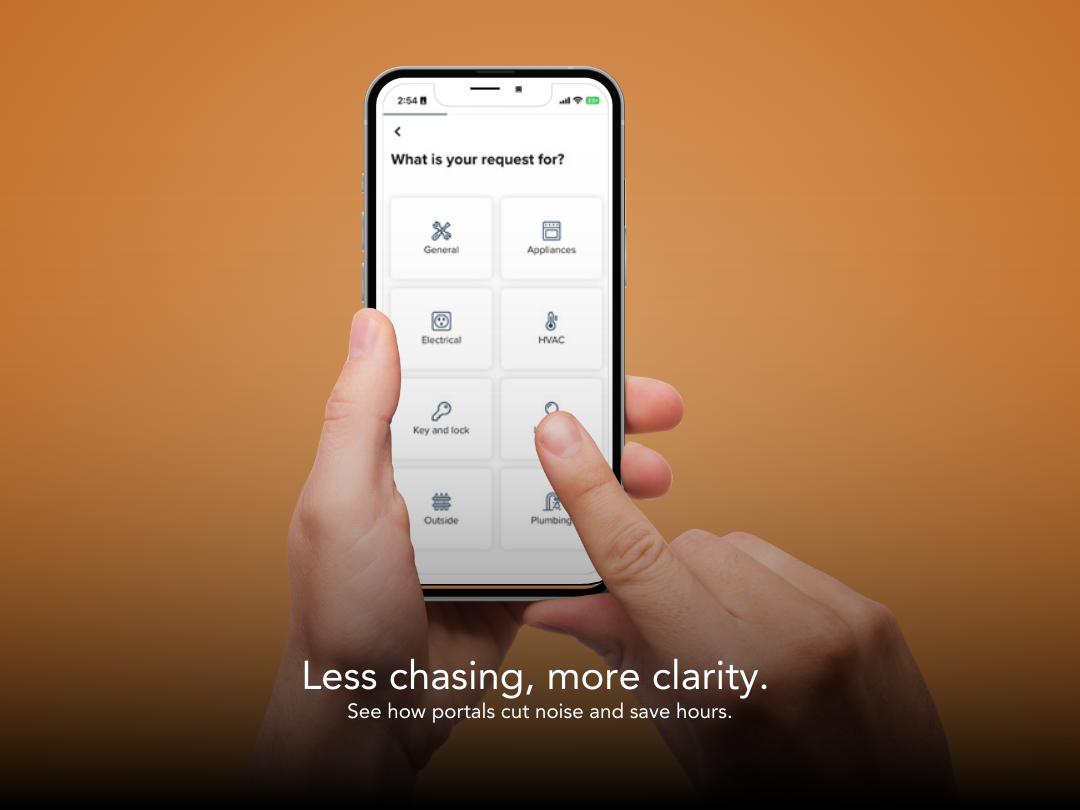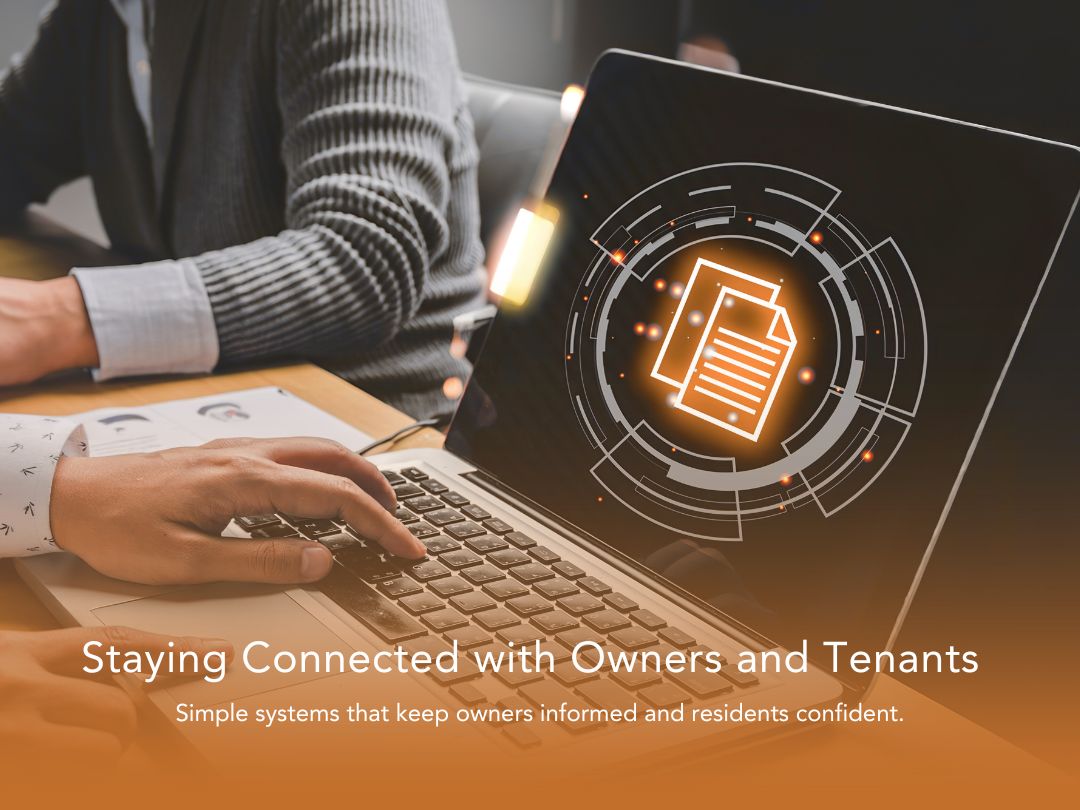Building solid relationships with tenants is essential for successful property management. Effective communication is at the core of these relationships, allowing landlords to address concerns, resolve issues, and maintain a positive rental experience. In this blog post, we will discuss tenant communication best practices that can help you foster strong relationships with your tenants, enhance tenant satisfaction, and ultimately improve your property management business. From initial contact to ongoing communication, these strategies will help you create an open and transparent line of communication, leading to happier tenants and a more successful rental business.
Establish Clear Channels of Communication:
Provide multiple communication channels: Offer tenants various ways to reach out to you, such as by phone, email, or an online portal.
Communicate preferred communication methods: Let tenants know the best way to contact you for different types of inquiries or emergencies.
Set response time expectations: Inform tenants about your typical response time and ensure you strive to meet or exceed these expectations.
Utilize technology: Use property management software or apps that streamline communication and provide convenient access for landlords and tenants.
Be Prompt and Responsive:
Respond promptly: Aim to promptly reply to tenant inquiries, whether about maintenance requests or general questions.
Acknowledge receipt of messages: Even if you cannot provide an immediate solution, acknowledge the tenant's message to let them know you received it and are working on it.
Address maintenance issues promptly: Act swiftly when addressing maintenance requests to demonstrate your commitment to tenant satisfaction and property upkeep.
Keep tenants informed: Provide regular updates on the status of repairs or any other ongoing issues to keep tenants in the loop.
Practice Active Listening:
Give tenants your full attention: When communicating with tenants, whether in person or via phone or email, listen attentively and demonstrate that you value their input.
Encourage open and honest communication: Create a safe and welcoming environment where tenants feel comfortable sharing their concerns or suggestions.
Show empathy and understanding: Put yourself in your tenants' shoes and try to understand their perspective, showing kindness and addressing their needs with compassionately addressing their needs.
Follow up on previous conversations: Refer to previous discussions or concerns raised by tenants to show that you value their feedback and take their concerns seriously.
Provide Clear and Timely Information:
Communicate important updates: Keep tenants informed about any changes that may affect their tenancy, such as lease renewals, policy updates, or maintenance schedules.
Provide move-in and move-out instructions: Offer clear instructions and guidelines to help tenants navigate the moving process smoothly.
Communicate lease terms and policies: Ensure tenants fully understand their rights and responsibilities by explaining lease terms, including rent payment procedures, pet policies, and maintenance responsibilities.
Send reminders and notifications: Send reminders for rent payments, upcoming inspections, or any other important dates to help tenants stay on track and avoid confusion.
Foster a Positive and Respectful Environment:
Be professional and respectful: Maintain a professional tone in all interactions and treat tenants respectfully and courteously.
Respond to feedback and concerns: Address tenant feedback and concerns promptly and appropriately resolve any issues.
Encourage community engagement: Foster a sense of community among your tenants by organizing occasional social events or providing resources for local activities.
Celebrate tenant milestones: Acknowledge important milestones such as birthdays or lease anniversaries to make tenants feel valued and appreciated.
Implement Regular Check-Ins and Surveys:
Conduct regular check-ins: Schedule periodic meetings or calls with your tenants to address any concerns, provide updates, and gather feedback on their living experience.
Send tenant satisfaction surveys: Distribute surveys to gauge tenant satisfaction and identify areas for improvement. Encourage tenants to share their thoughts and suggestions for enhancing their rental experience.
Offer Clear Communication Channels for Maintenance Requests:
Implement a streamlined maintenance request system: Provide tenants with a user-friendly platform where they can easily submit maintenance requests online. This not only improves efficiency but also ensures that requests are properly documented.
Set expectations for response times: Communicate the expected timeline for addressing maintenance requests and provide updates on progress to keep tenants informed.
Provide Resources and Information for New Tenants:
Create a comprehensive welcome package: Offer new tenants a package containing essential information about their rental property, including emergency contacts, local amenities, and any unique property features.
Share resources for local services: Provide a list of trusted local vendors for services such as repairs, cleaning, and landscaping, helping tenants navigate the process of finding reliable service providers.
Utilize Email Newsletters or Blogs for Ongoing Communication:
Send regular newsletters or publish blog articles: Keep tenants informed about community updates, property maintenance tips, upcoming events, and local news through email newsletters or blog posts. This allows you to establish yourself as a knowledgeable resource and engage with your tenants on a regular basis.
Resolve Conflicts with Mediation and Fairness:
Mediate conflicts promptly: When disputes arise between tenants, address them promptly and impartially. Listen to both parties involved and work towards a fair resolution that considers the best interests of all parties.
Enforce policies consistently: Ensure that all tenants are treated fairly and that policies and rules are consistently enforced. This promotes a sense of fairness and prevents potential conflicts from escalating.
Conclusion
By implementing these tenant communication best practices, you can establish strong and positive relationships with your tenants. Regular check-ins, streamlined maintenance processes, clear communication channels, and providing valuable resources contribute to tenant satisfaction and retention. Additionally, resolving conflicts fairly and fostering a positive living environment will create a sense of community within your rental properties. Remember, effective communication is an ongoing process, and continually seeking feedback and improving your communication strategies will help you build trust and maintain a successful landlord-tenant relationship.
By following these practices, you can not only enhance tenant satisfaction but also establish a positive reputation as a reliable and responsive property manager.












